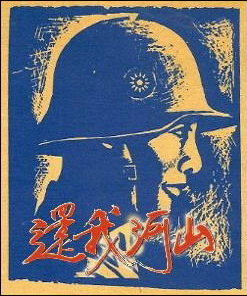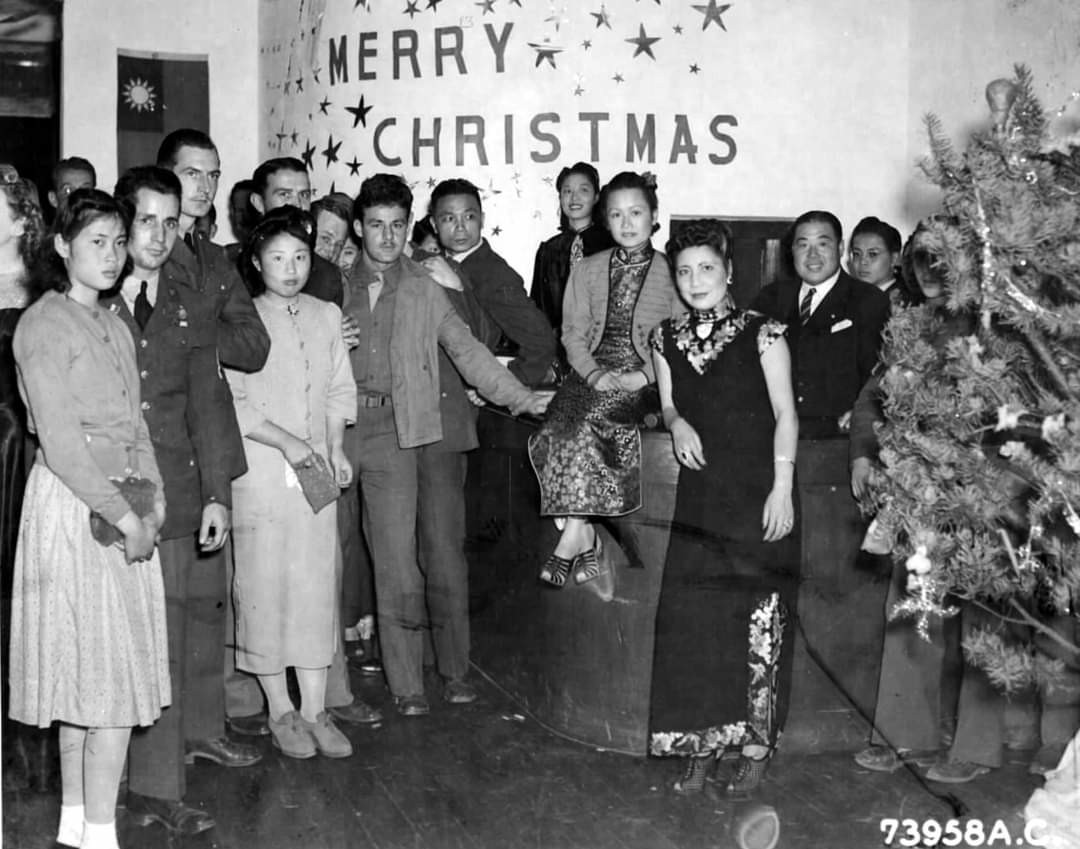Christmas and Culture: China in 1942
- By Peter Harmsen
- 24 December, 2022
- No Comments
Christmas eighty years ago was a time when the cultural differences between China and its wartime western allies were highlighted to an even greater extent than during their day-to-day cooperation. This is described in Peter Harmsen’s new book Darkest Christmas: December 1942 and a World at War, available here and here. Below an excerpt:
On Christmas Day, all ranks of the foreign forces in China’s wartime capital of Chongqing were invited to a tea party in the auditorium of the National Military Council. For the occasion, life-sized images had been painted on the walls, offering a curious mix of ancient religious and modern political motifs. On one wall were the wise men riding towards Bethlehem on their camels, while another featured Churchill, Roosevelt and Stalin trampling on Hitler, Mussolini and Hirohito. The Chinese national anthem was played, followed by a Christmas carol, recalled Lieutenant Colonel John Monro, the assistant military attaché at the British embassy. “The Europeans and Americans sang in English and the Chinese in Chinese,” he wrote in his memoirs. “This is not quite as bad as it sounds as the Chinese translation has the same metre and is sung to the same tune as the original.”
Paradoxically, Chinese leader Chiang Kai-shek’s Christianity caused some unexpected friction with his western allies. One of his main pre-war political campaigns, inspired partly by his religious puritanism, had taken the form of the “New Life” movement, which sought to eradicate corrupting influences in Chinese society by eliminating practices such as smoking and gambling, while also getting rid of prostitution. The tenets of Confucianism were brought up to justify the measures, but with Chiang’s intensified religious fervor, Christianity became a heavy influence as well. Therefore, when a Red Cross nurse organized a dance for the enlisted westerners at the Victory Club in Chongqing during Christmas 1942, journalists quickly noted that it collided with the New Life movement’s austere principles, which specifically targeted dancing, holding out the possibility that the lonely men would be unable to find any dance partners among local Chinese women. “Let us hope that the New Life movers won’t be so cruel to their allies,” a reporter stated.
Meanwhile, Chiang invoked Christianity in his Christmas speeches, which were addressed to both a domestic and a foreign audience, and once again he revealed his belief in prayer as an actual, potent weapon that could be deployed in the struggle against the Axis. “At this Christmas, amidst the raging of a world conflict, I sincerely pray to Jesus Christ, the Prince of Peace, for the early arrival of our common victory,” he said in his 1942 address, “so that the world may be delivered from the ruthless oppression of the three Axis countries, Germany, Italy and Japan, and that the conquered peoples now living under their domination may sooner obtain their liberation and freedom.”
The lofty rhetoric contrasted with the words used by his chief American advisor. US Army General Joseph Stilwell, known as “Vinegar Joe” because of his acerbic wit, sent out a separate Christmas message to men under his command, revealing his down-to-earth humor and understanding of life as it presented itself at the bottom of the military hierarchy: “Most of us will have large holes in the toes of our Christmas stockings this year, but, judging from your work over the past ten months, I know you can take it, that and a lot more.”




 Copyright © 2024
Copyright © 2024
Leave a Reply